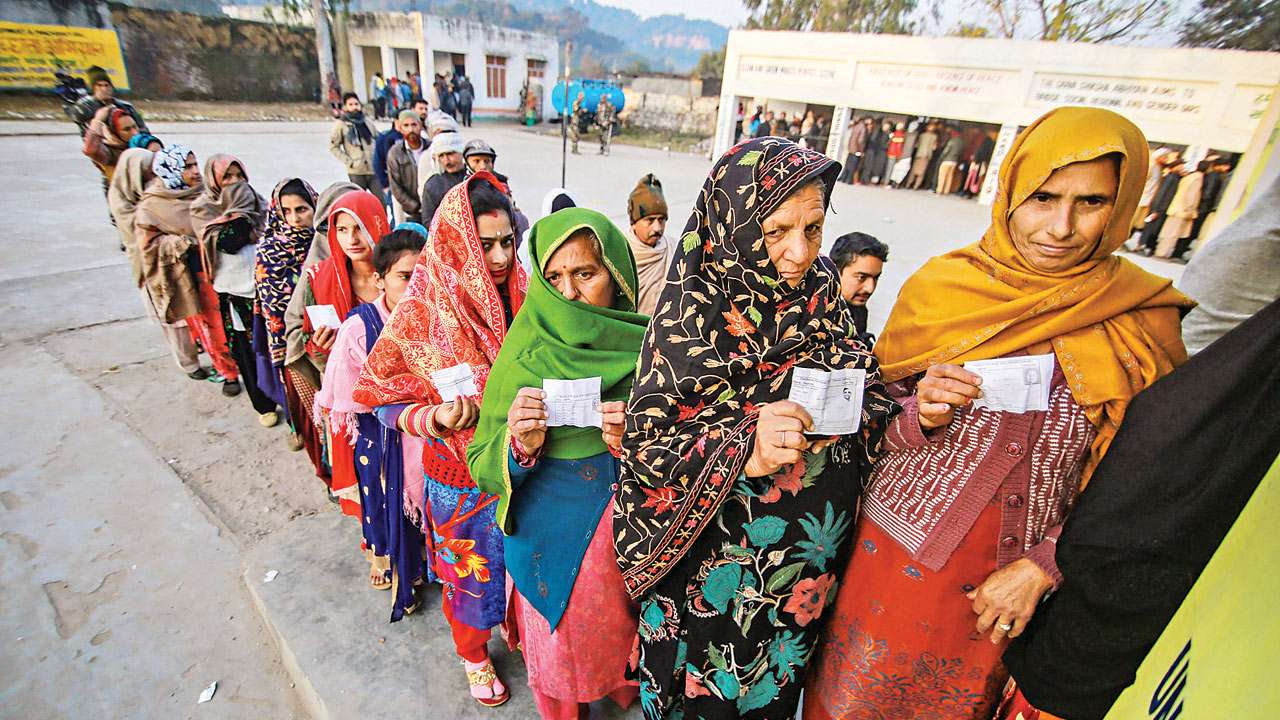
The electoral bonds introduced in January, 2017, have been a great source of concern for a broad section of the civil society, besides the Election Commission (EC), which has been crying hoarse for electoral reforms in the past two decades. The extent to which the electoral bonds undermine public accountability has been confirmed.
In December, 2018, the Finance Minister declared in the Rajya Sabha that “the government has not received any concerns from the Election Commission on the issue of electoral bearer bonds.”
A letter obtained by an RTI activist and accessed by a media outlet in April, 2018, however, revealed that the EC rebutted the amendments in four Acts - namely, the Income Tax Act, the RBI Act, the Representation of People Act (RPA) and the Companies Act, saying they suffer from huge problems and are a `retrograde step’.
As a result, the worst fears regarding political funding in India have been realised. An RTI report obtained from the State Bank of India revealed that Rs 222 crore worth of electoral bonds were purchased in 2017-18.
As the November 2018 BJP audit report stated, it received Rs 212 crore in donations from electoral bonds, that leaves them with 95 per cent of the total donations. As much as 91.6 per cent of their total donations came from corporates.
The SBI report also revealed that there is no demand for bonds of lower denominations, as 99.9 per cent of the total bonds were purchased in denominations of Rs 10 lakh and above. This is a clear indication that the corporations are purchasing these bonds and not the common man.
The Finance Minister has been advocating greater transparency in political funding. It was argued that they were essential to change the earlier system, where donations came in cash from a range of sources, including political workers, party sympathisers, small business people and large industrialists, mostly anonymous.
This resulted in ‘unclean’ or `black money’ entering the system. In his budget speech, the Finance Minister said that without transparency of political funding, free and fair elections are not possible and that for 70 years, efforts to introduce transparency had failed.
A 2017 report by Association for Democratic Reforms (ADR) reveals that two thirds of donations in the previous decade came from anonymous sources. These could be dubious sources, including foreign funds. So the previous system did urgently need reform. But electoral bonds are not a step forward, but many steps backwards.
Electoral bonds have not found many backers ever since they were introduced. Election Commission has been the first to protest. Chief Election Commissioner Nasim Zaidi back in July, 2017, expressed concern saying that “we are here to work for the people” and that “it is a trade off, whether the people’s right to know is supreme or not.”
In November, 2018, the outgoing Chief Election Commissioner OP Rawat declared that “none of our concerns regarding the electoral bonds have been addressed.” But their very valid concerns seem to have fallen on deaf ears. I, for one, used to say that any reform is a good reform. But I am forced to change my opinion as a result of the regressive nature of electoral bonds.
Firstly, Amendment to the Section 29(C) of RPA, 1951, hurts electoral transparency. Crores of rupees can now be freely paid by companies and no one will get to know who has given money to whom - and for what consideration. The source of political donations made through electoral bonds need not be declared to the EC. What can be a bigger antithesis of transparency?
Secondly, while no corporation would like to alienate a ruling party, it would still like the pretense of funding all parties equitably, which is why the opposition parties always had a fair share in the pie. Now that the pretense is gone and the donors identity has been protected, the ruling party has ended up with 95 per cent of donations.
An investigation by the media in April, 2017, revealed that there were hidden alphanumeric numbers on the bonds. As the donors are required to furnish their KYC for purchasing the bonds, both could be easily matched with the serial number to reveal the identity of the donor. This information would be available only to the ruling party. While it is true that even bank notes have a serial number on them, why is the number on electoral bonds hidden from the people and could only be discovered in a forensic lab?
Another serious ‘deform’ that has been inflicted is the removal of the cap on the donation that companies can make to political parties, which used to be 7.5 per cent of the average three-year profits. Now 100 per cent of the profits can be donated to any party.
The EC has rightly pointed out that “this opens up the possibility of shell companies being set up for the sole purpose of making donations to political parties.” This is crony capitalism in its purest form, which has now been legalised and institutionalised.
To top it all, amending the Foreign Contributions Regulation Act, 2010 (FCRA), now exempts political parties from the scrutiny of foreign funds received by them. The amendment makes it legal for political parties to receive funding from foreign donors, that too with 42 years retrospective effect! How does this increase transparency?
Electoral bonds are a dangerous ‘reform’ that kills transparency of political funding, which were professed to be its goal. It is time electoral reforms are approached with a progressive outlook. A National Electoral Trust to which all donations can be made must be considered.
Author is former Chief Election Commissioner of India and author of An Undocumented Wonder - the Making of the Great Indian Election